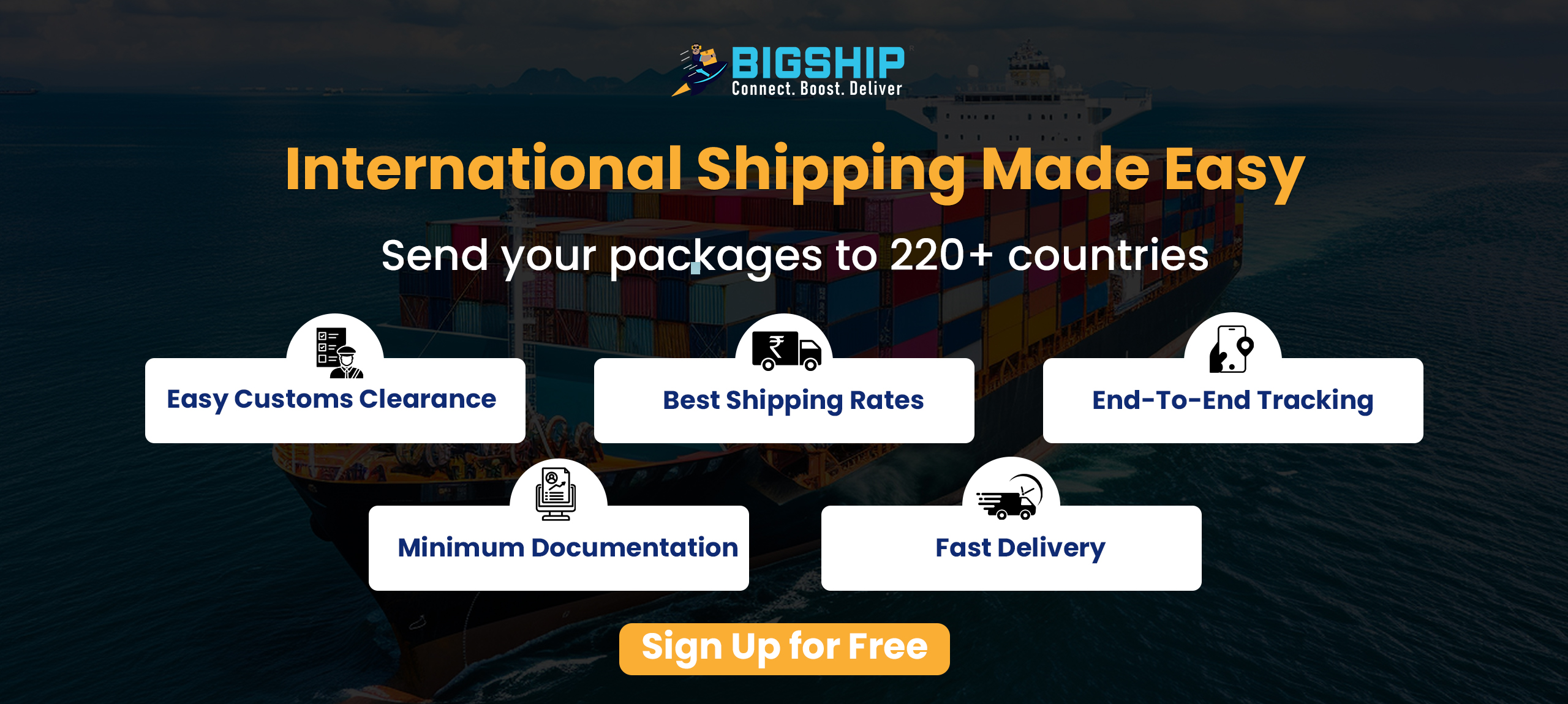How To Begin Import Export Business: A Complete Guide

2. How To Start Import Export Business in India?
3. Documents Needed For Import Export Business in India
4. Benefits of Import Export Business
5. Conclusion
6. FAQs
The import export business in India has seen remarkable growth over the years and has presented budding entrepreneurs with endless opportunities. This business has become a significant driver of the Indian economy with the increasing demand for goods across borders.
India’s diverse production capabilities, from textiles and spices to machinery and chemicals, make it a hub for global trade. New entrepreneurs who wish to learn how to start import export business in India can take advantage of the country’s growing international trade relations and wide-ranging export potential.
In this blog, we’ll explore everything you need to know about launching your own successful import export business.
What is Import Export Business?
The import export business involves the buying and selling of goods across international borders. Import and export meaning refers to trading across borders, where imports bring products into a country, while exports send them out. This business opens up global markets and helps companies reach customers worldwide.
How To Start Import Export Business in India?
Starting an import export business in India can get you many opportunities in the international market. With a wide range of products, many entrepreneurs in India are looking to enter the export business. However, you need to know how to start import export business and the steps are mentioned below.
Research Your Market: The first step is to thoroughly research your market. Understand the need for your product in the international market. Seasoned and successful exporters very well know where to sell and how to promote their products. So it is very important to study market trends and competitors.
Obtain a Business PAN Card: The second step is to get a company PAN card. This is essential for securing an import export license and tracking your business’s taxes and financial dealings. It is issued by the Income Tax Department.
Register Your Business: Next, you’ll need to officially register your business. This can be done as a sole proprietorship, partnership firm, and public or private limited company, depending on your preference.
Open a Business Bank Account: A business bank account is required to manage your company’s financial transactions. This account will be used for receiving payments, paying for goods, and handling overall expenses related to the import-export business.
Get an Import Export License: You should obtain an import export license, also known as the Import-Export Code (IEC). This is a 10-digit code which is essential for conducting international trade. Without an IEC, businesses cannot participate in import and export activities in India.
Identify Potential Buyers: You can do this through online marketplaces, trade fairs, or exhibitions. Establishing connections with the right buyers is key to growing your export business.
Plan Financials: Before starting, estimate your financial needs. You will require funding for initial setups like product sourcing, shipping, and marketing. For this, you can explore government subsidies and private loans to support your business.
Partner with a Reliable Shipping Company: A strong logistics partner is essential for exporting products. Look for reputable courier aggregator, like Bigship, to ensure safe and timely delivery of your goods worldwide. Bigship has partnered with 19+ trusted logistics companies and it provides international shipping to more than 220 countries & territories.
Consult a Customs Clearing Officer: Going through the process of customs can be complex. It’s best to connect with a customs clearing officer who can guide you through customs duties, port procedures, and other legalities involved in the import-export process.
Documents Needed For Import Export Business in India
There are several essential documents, you should be aware about before starting your export business in India. These documents are listed below:
Bill of Lading/ Airway Bill: The Bill of Lading (for sea shipments) or Airway Bill (for air shipments) acts as a receipt from the shipping company to the exporter, proving that the goods have been shipped. It also acts as a contract between the shipper and carrier, outlining the terms of transport.
Commercial Invoice: This document lists the details of the goods being shipped, including the quantity, description, price, and terms of sale.
Shipping Bill: The shipping bill is a document issued by the customs department that permits the exporter to send goods out of the country. It contains details such as the exporter’s name, port of shipment, and value of goods.
Terminal Handling Receipt: This receipt is proof that the goods have been handled at the shipping terminal and are ready for export. It confirms that all necessary terminal charges have been paid by the exporter.
Foreign Exchange Control Form: This form is submitted to ensure that the foreign currency earned from exports is handled as per India’s regulations.
Importer of Record (IoR): The Importer of Record is the entity responsible for ensuring that the imported goods comply with local laws, including payment of taxes and duties.
Benefits of Import Export Business
The import export business offers tremendous opportunities for growth and expansion, especially in today’s interconnected world. For companies looking to start or expand an export business, here are some key benefits:
Global Market Access: Import Export businesses provide access to a larger, more diverse global market. This helps businesses to reduce reliance on a single economy and increase overall revenue.
Higher Profit Margins: By sourcing goods from low-cost regions and selling in markets with higher demand, the import export business in India can achieve higher profit margins.
Diverse Product Range: Import-export businesses can offer a wide variety of products that cater to different consumer preferences and market segments. This also helps in increasing sales opportunities.
Networking Opportunities: Export businesses facilitate valuable networking and partnerships, building long-term business relationships that benefit both sides.
Scalability: Import export field lets small businesses to gradually expand their market reach. It provides room for consistent business growth over time.
Conclusion
The import export business in India presents significant opportunities for entrepreneurs looking to tap into the global market. By understanding the essential steps, required documents, and benefits associated with this business, aspiring exporters can start their business. The growing demand for diverse products ensures a thriving landscape for trade, enabling businesses to adapt and prosper.
Apart from that, tie up with courier aggregator like Bigship for logistics solutions will give a boost to your import export business. Bigship helps make global trading a hassle-free experience for exporters and importers, as well as individuals wishing to ship products to and from international locations.
To leverage shipping services of Bigship sign up now.
FAQs
Ques: Is Import Export business in India profitable?
Ans: Yes, the import-export business in India can be highly profitable due to access to global markets, diverse product offerings, and the potential for higher profit margins.
Ques: Give some benefits of export business in India?
Ans: Some of the main benefits of export business are mentioned below:
- Access to global markets boosts earnings beyond local sales.
- It gives wider customer reach across borders.
- Export businesses build strong business network and enhance trade relations.
Ques: What are the documents required to export products from India?
Ans: The list of documents required for exporting goods from India are:
- Bill of Lading/ Airway Bill
- Commercial Invoice
- Shipping Bill
- Terminal Handling Receipt
- Foreign Exchange Control Form
- Importer of Record (IoR)





